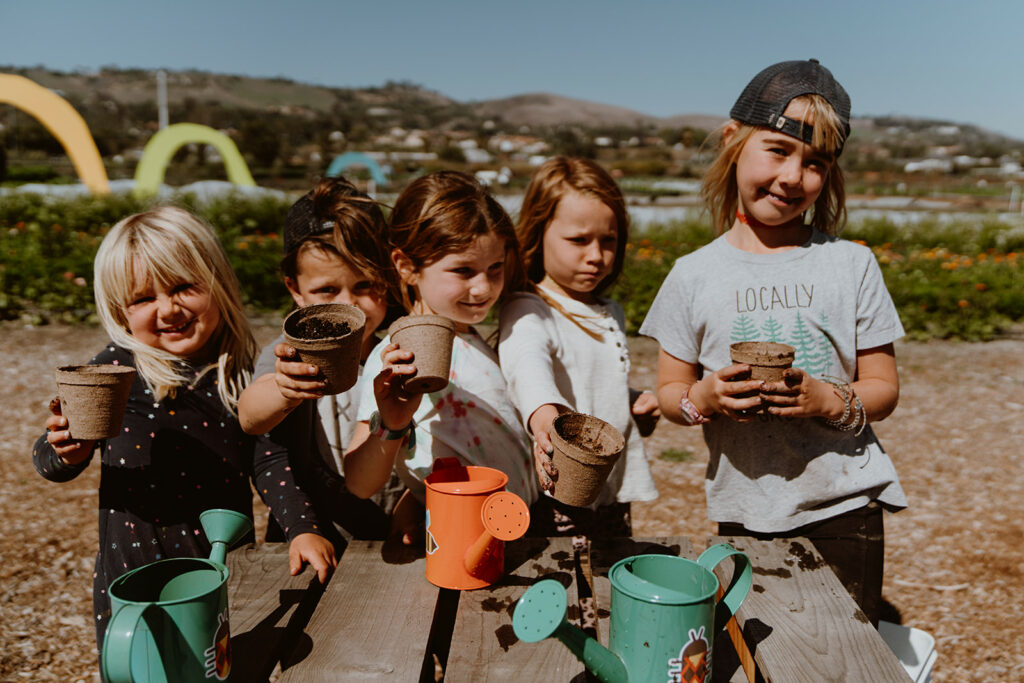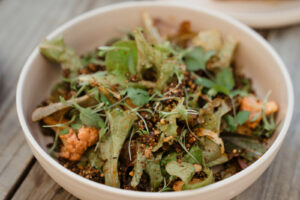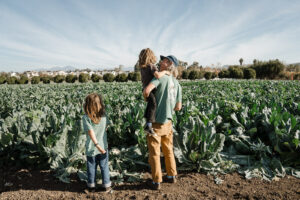It’s caring for our children by creating non-negotiable standards of accessibility for all.
Access and education should not be a limiting factor and nothing should prevent our children from growing up with healthy, nutritious food, understanding that we are part of our food system, that we are responsible for our future, and that we have the ability to create beautiful, thriving ecosystems that take care of us.
A truly holistic path to stewardship depends on our ability to love all children, of all species, for all time. The ultimate, tangible application of this principle is for all schools to serve delicious, nutritious, organic food every day, for free, in their cafeteria. An organic salad bar is great, access to a school garden is phenomenal, but when schools are still serving processed foods with zero nutrition, we’re limiting the potential of our children.

Of course, all the principles are interconnected, but to “Nourish All Children”, we have to see how intimately tied it is to eating fresh and how that ties back to buying local and seasonal; in turn, seasonality supports polycultures, and so on. This all comes back to regeneration and, for us, we believe a regenerative future is embodied by our children.
We have a responsibility to nourish all children, their hearts, their minds, and their stomachs. There’s great humanity in the natural world and children, unarguably, are beautiful and sacred. To nourish all children allows us to do our duty as humans because everyone, everywhere, should have access to healthy, nutritious, delicious, local food. This very concept is what re-engages farmers and communities in the conversation of food.

Not that long ago, all food was local. We grew locally for our communities and we grew food everywhere – backyard gardens, fruit trees – and farmers were prevalent. Just like we had a local hardware store, local doctor, and local pharmacist, we had a local farmer and a local source of produce. These were the basic building blocks of a healthy community. Only once agriculture became industrialized and the idea that all types of food should be available everywhere, all the time, did we start to replace local agriculture with industrial dependency. In the name of ease we lost our integrity, and the environment and our bodies have suffered for it. Nourishment and food have to come from our local soil, it cannot be flown in from thousands of miles away.
The question is, what would it look like for our children to be nourished? How would their brains function at a higher capacity? What would their creativity look like? What would the community around us need to be to support the idea that our children are important and that food is what sustains us?
“Nourishment is the key to health and health is obviously the key to living a happy life.”
Ideally, we’re measuring the success of our humans based on their happiness and, ultimately, based on their health. For us, “health” and “happiness” are interchangeable. It all comes back to how we eat and how we see ourselves on the planet. Starting with food, it’s essential that we reconnect with the environment around us.
Alice Waters has been working on the idea of nourishing all children for at least 30 years. She’s modeled this with schools in Berkeley, where they’ve built an edible schoolyard, integrated edible education into the classrooms, and all students are eating food from the garden while also learning how to make it. This is incredibly inspiring and we need to get more kids with their hands in the soil, learning how to prepare culturally unique, colorful, seasonal meals.

The truth is, you can teach every lesson in the garden and you can teach every subject in the kitchen. There’s no reason why we have to stay walled in, and it’s our hope to start teaching chemistry through baking and history through the food on a plate.
Nourishing all children is about connecting real food to our schools and home.
Access to healthy, nourishing food should never be an issue.
HOME
- Take steps to eliminate preservative-laden food from your pantry
- Eat a meal together, cook together, prep and buy food together
- Teach your children (or nieces and nephews) a traditional skill or family dish
RESTAURANT
- Sponsor a school garden and help to cater fundraisers for community gardening programs
- Support a salad bar in a school by helping to get one started in a school near you
- Host a cooking class for families. Try fun menus such as flatbreads topped with seasonal veggies and homemade pizza








